Last month’s Seatrade Cruise Global 2021 event was a real success. The 35th edition of cruise’s popular calendar gathering brought people together for the first time in a very long while. Others attended virtually in what was a hybrid endeavour that proved rewarding for all in attendance.
theICEway’s own Ian Richardson was there in his capacity as Seatrade Cruise Tech Ambassador, presiding over a series of relevant IT panels. You can watch the first of those on IoT here, or read on below for a transcript.
Key quotes
"It's technology that's really the key to getting our industry restarted."
"From a guest perspective, one of the things that we [at Royal] keep looking at [and] talking about is how do we continue to let you vacation effortlessly while we connect the world around you but be real conscious of that 'creepy' factor?!"
“There are unlocks, unlocks both that make it easier for you to be on vacation, unlocks to make it easier for you to wait to get in line if you have to get in line or not to put you in line at all. [Then there are] fun unlocks. If you've seen our Celebrity Apex show, the Magic Carpet has an IoT device in it so that somebody can find out where the Magic Carpet is. Some of those are just surprising delights and some of those are very practical.”
"Everything we [at Sourcetoad] do now is IoT."
"[For us at MSC], the technology is really meant to be applied to be at the service of hospitality.”
"I think it depends on your demographic… If you have a Grandiosa… maybe sometimes you want that technology to be visible."
"We [at Sourcetoad have] built beacons into picture frames."
"[With technology], it's definitely about how you message it to your passengers and also how intrusive it is.”
"In our view, IoT could be applicable for both [larger and smaller ships] but… what does it mean for you, what is your objective, what do you want to achieve with technology?"
"But what we [at Royal] found is data is a real challenge."
"[Our aim is to] go back to our guest to offer something that is more customised and personalised to his or her expectations."
“Keep in consideration the ‘by design’ and ‘by definition’ concept of the GDPR and more specifically security and cyber security. This gives us the level of assurance that you need to have before you take any further action. It's a completely different change in the paradigm to do something afterwards related to this topic [rather than] doing it during the design process."
"Security by design is key."
“These are the kind of challenges we [in the cruise industry] normally face because the majority of the partners and suppliers that are providing this kind of solution normally they [are] land-based and land-based is completely different."
“… You’ve got to really understand what you are trying to solve and then figure out what is the right technology and then figure out how to make that technology work."
“It's vendors that can stay… available all the time basically because things go wrong at all hours of the day [in the cruise industry].”
Full transcript
Ian Richardson (IR), CEO & Co-Founder of theICEway:
“For those of you who don't know me, I'm Ian Richardson, CEO and Co-Founder of theICEway and Seatrade Global's Technology Ambassador. I'm very excited about the technology content we've got lined up today… we're going to be discussing things like [IoT]… cyber security, IT operations and the convergence of digital and physical experiences a bit later on. We've got a real [mix] of content for you.
“… As we all know the last… couple of years has been a pretty rough time for everybody in the industry but technology itself hasn't stopped and it's technology that's really the key to getting our industry restarted. One of these technologies is the internet of things, [or]… IoT and this is something I ‘Googled’: It (IoT) refers to a system of interrelated, internet-connected objects that are able to connect and transfer data over a wireless network without human intervention.
“Basically it's anything connected to the internet. In a cruise context that can be anything from a medical device to a robot bartender. It can also include the multiple devices on the ships that the crew and the guests use, like mobiles and touch screens.
“To discuss this topic today we've got really good speakers and panellists… who are going to join us physically and we've got one that's going to join us virtually as well. So first up is Jay Schneider who is the Chief Product Innovation Officer at Royal Caribbean Group, welcome Jay. Next up is Greg Ross-Munro, the CEO of Sourcetoad who developed guest-facing specialist cruise software for much of the industry…
“Joining us virtually we have Luca Pronzati… hi Luca. So Luca is the Chief Business Innovation Officer at MSC Cruises. Welcome guys… I want to start with you first Jay, so can you tell us in your own words why you think an increased prevalence of IoT is a good thing for the guest experience at Royal brands and what your strategy is?”
Jay Schneider (JS), Senior Vice President and Chief Product Innovation Officer for the Royal Caribbean Group:
“… Thanks for having me. Your definition was great, everything on a ship in a terminal, in people's lives can be internet-connected. Much of my home is now internet-connected, which is both fun and creepy. From a guest perspective, one of the things that we keep looking at [and] talking about is how do we continue to let you vacation effortlessly while we connect the world around you but be real conscious of that creepy factor?
“The fact that throughout my house, Alexa can listen to me wherever I go and every plug is interconnected and every light is interconnected. [Plus] the amount of data that Amazon and others are collecting without me in my home, we're really thoughtful of what that means for the guest experience.
“There are unlocks, unlocks both that make it easier for you to be on vacation, unlocks to make it easier for you to wait to get in line if you have to get in line or not to put you in line at all. [Then there are] fun unlocks. If you've seen our Celebrity Apex show, the Magic Carpet has an IoT device in it so that somebody can find out where the Magic Carpet is. Some of those are just surprising delights and some of those are very practical.”
IR: “Great, now Luca… what sort of applications have [you been] using IoT for?”
Luca Pronzati (LP), Chief Business Innovation Officer for MSC Cruises:
“… First of all thank you for inviting me and good afternoon to everybody or good morning. MSC [started] deploying IoT infrastructure back in 2017 with the launch of… ‘smart ships’… into the market…
“IoT is really supporting and elevating the customer experience… providing additional… functionality [for] our guests… on board [so] they can appreciate all the services, they can enjoy the ship… the technology is really meant to be applied to be at the service of hospitality.”
IR: “Thanks Luca, so I want to bring in Greg now… to offer a different perspective. As a technology vendor delivering solutions to the industry, how are you implementing IoT into your solutions?”
Greg Ross-Munro (GRM), CEO of Sourcetoad:
“Good question. Everything we do now is IoT. The internet [definition] on that is a little misleading sometimes because everything we do has to work on board and when the satellite’s down it still has to continue to work. Basically it just means reporting, there's some data analytics coming in, there's a dashboard that somebody can see and they're using it to be proactive. So a screen is down, the refrigerator's temperature is fluctuating between variables that [are] unacceptable.
“… When we started out we had an initial product that was mainly for data synchronisation between content management and shipboard systems. Now that system's grown into basically being an IoT monitoring system which we never thought it was going to be because there are so many disparate systems on the ship that we needed to just deliver content to. We inadvertently became an IoT company. So, to answer your question, almost everything we do now has some IoT component whether you're plugging a raspberry pie into a refrigerator or you're monitoring the health of a set-top box.”
IR: “Right and I know at Sourcetoad you put a lot of effort into real customer testing and we've talked about that before… when thinking about guest experience, how do you keep the IoT experience as unobtrusive as possible… for certain purists who don’t want to see any tech?”
GRM: “I think it depends on your demographic… If you have a Grandiosa… maybe sometimes you want that technology to be visible. [It can be great when]… you see something and it interacts with you and you don't mind that ‘creepy’ factor. Maybe a slightly younger, more tech-savvy… crowd [on board]… a Wonder of the Seas.
“… Then sometimes you have [a] more conservative, traditional [group of] passengers who you… have to keep some [things] out of sight [from]… We've built beacons into picture frames… or on the labels of something so [on a] previous generation ship it was just a label, and then [on] the next generation [ship] the label [is] actually an IoT device hidden away.
“… Does the person have to pick up their phone and interact with something [or] is it passive response? For example, you [can] walk past something, it detects you and then some sort of data is sent up the chain, so these things are really easy to hide now. They're tiny… if you want to embed technology in anything it's pretty durable but… occasionally you put an infrared body heat sensor into a smoke detector and people still complain.
“… There's a balance but it's definitely about how you message it to your passengers and also how intrusive it is.”
IR: “… Luca, if we think about the size of ships is IoT really only… for larger, higher capacity ships where you [have]… a lower ratio of crew to guests? [Like the Meraviglia class. Or]… is there just as much IoT on [smaller ships such as the newer Luxury Explorer]?”
LP: “This is definitely a good question… In our view, IoT could be applicable for both but… what does it mean for you, what is your objective, what do you want to achieve with technology? Clearly between the two brands there is a completely different purpose so on the contemporary segments we do want to offer a more front end guest experience powered and enabled by technology like IoT. In the Explorer journey this will be something more – from a certain perspective – sophisticated but less intrusive, so it's a… completely different perspective [and] approach.”
IR: “Now I'd like to talk a little bit about data and I see this in in two parts. Firstly, in terms of amalgamating all the data that we get from IoT devices: What challenges do you have to overcome? Secondly, in terms of the data that you do gather: What kind of insights and feedback are you getting to improve the customer experience? So… the first one is ‘how do you deal with all the data from all these devices and what kind of challenges there are’…”
JS: “As part of our restart of global operations… [whether it was] adding wearables for contact tracing cameras that passively watch and detect other devices on the ship… [or it was another such development]… the simple reality is we need more and more processing power on our ships and so in some cases we can't handle it and we have to pull data off, process it in the cloud and then put reports and data back in. But what we found is data is a real challenge. It's a real challenge for two reasons, one… the amount of space, processing capacity, intelligence needed but then you need people who know what to do, you need the right people on board and shore side who can understand how to connect the dots of all of this data that we're collecting.
“I love Luca’s point you've got to be able to know what you want out of it, whether it's a small ship, a big ship, whatever the use case is, and you need people who are really trying to understand how to maximize the data otherwise it's just a ship loaded with devices collecting data that you're not doing anything with. So for us it's the physical processing and the people that know what to do with the data.”
IR: “In terms of the data that you do gather… how are you using the insights you gain from it? Maybe that's to you, Luca.”
LP: “In general with the data we gather we try always… first of all, I just want to make clear the concept that any data that is gathered on board… for any purposes… is designed to be GDPR compliant, security compliant… because this is a very delicate topic.
“… We try to process this data with the objective to… go back to our guest to offer something that is more customised and personalised to his or her expectations. So this is our own data that enabled us – which was not the case in the past – to really elevate and transform continuously the experience because we don't need to forget that… first of all our guests are people living the everyday life and their expectations and their consumer habits are changing quite fast, so we need to keep [up with] the pace.”
IR: “Have you got anything to add on how the data can be used, Greg?”
GRM: “I come from the vendor and pure software side so gathering it, collecting it, storing it, even processing it is getting easier to some minor degree. Maybe not the amount of data you collect but some of the… machine learning (ML) that we had three or four years ago, a lot of it… [you had to be] a data analyst… [or] a data scientist. You had to know the right questions and some of that is slowly starting to change where the ML models are getting… [to the stage] where they'll actually start finding patterns on their own.
"Which is also creepy (!) but rather than like specific, targeted questions which… I always used to say was the only way to do this but the other thing to add there is we find patterns but they don't make any difference unless there's some sort of operational effect. I'm not saying we've given up in trying to affect change on board in terms of ‘what crew?’ or training. Or if you find out that guests show up on average 15 minutes later for their reservations as the year goes on and it gets darker earlier. How do you change actual staffing if you're on board the ship?
“… That kind of change is really difficult from an operational perspective and I think we might see that starting to change because people will start being brought these solutions and these opportunities more and more. But it also means that the way that you use it to affect the passenger or the crew is maybe more informing them about something, sending a push notification or a recommendation rather than trying to change everything, the way the whole ship works.”
IR: “Right, I was trying to make this session a little bit interactive with some audience participation because I know we've got some people virtually. So I did send a question out for people… and so far the only thing I've got is ‘well done and how did you manage to travel here with all the restrictions?!’
“… I did have to spend two weeks in Barbados which was an absolute ordeal… so [if] anybody's got any questions do post them in and there's [people] with [a microphone here] so if you've got questions I'll try and find some time…
“So Luka, you touched on security and GDPR; how does IoT make things more safe or less safe in terms of cyber security and how do you minimise the risks?”
LP: “… Theoretically this is less safe because whenever you add [an] additional device that can represent an entry point to your infrastructure and ecosystem, this is something that you need to manage [from] the beginning [in terms of] design…
“Keep in consideration the ‘by design’ and ‘by definition’ concept of the GDPR and more specifically security and cyber security. This gives us the level of assurance that you need to have before you take any further action. It's a completely different change in the paradigm to do something afterwards related to this topic [rather than] doing it during the design process.
“This is what we do… there is no other solution so you need to take this concept [from] day one into the design… so that whatever you build afterwards will be built with the stronger… control in place and any kind of application that will help us to prevent and minimise and ideally cancel the risk of attack.”
IR: “Security by design is key. Do we have any questions from the audience?”
Audience question from Christian at CLIA:
“Good morning, Christian Savelli, CLIA Research; one of the challenges that we have in research is to tell the story about the impact of passengers when they visit destinations. So when they leave the ship and how much in terms of economic impact at the destination level, even [for example] the interaction with different businesses, do you think that what you are proposing on both the vessels can be extended to when we have excursions? People visiting destinations? Could we collect data at the global level to tell a better story about our impact?”
IR: “it's a good question.”
JS: “… I love your definition of IoT, I kind of separate [out] your mobile device a bit from IoT [though] just because you interact with it so often [that] it kind of breaks the natural definition. The reality is the straw market in Nassau is not going to have an IoT labelled t-shirt in it for a little bit of time at least. So really understanding behaviour as people get away from our highly connected ecosystems onboard our ship is difficult but not impossible.
"It probably transitions a bit again to away from IoT and more to the device that they're carrying, so whether that is a wearable [or]… their cell phone. That's probably the way that we're going to best get the most intelligence on what they're doing with the exception of… a handful of programs that… are really exciting. [One] company [are] starting to try to figure out how to activate networks of shore excursion providers with better technology in destinations that don't have it.
"As those types of ideas and invention come to maturity, it just gives us new touch points of what our guests are doing while they're travelling. Privacy and security of course has to be thought of up front but I think that will get us deeper and deeper into the destination when we don't own it. When we own it that's a different thing, when it's our private destination and our own property, that's where there's for sure opportunity.”
IR: “… Are you doing anything in resorts or on land, or is it purely ship-based, Greg?”
GRM: “… [Yes, we work on both]. There's some interesting mesh technology that we've been playing with, in non-connected environments or in low-connectivity environments. [For example, if]… we wanted to chat with each other in this room and there's no actual network [then] devices can form their own mesh network.
"Technology is really useful for disaster recovery or for power outages but it does have applications in cruise and shore excursions, especially if you are in a destination that doesn't have that kind of infrastructure. Then as soon as you have built a mesh network out of your guests themselves… then you've essentially extended that ability for you to continue tracking and monitoring.
“Payment solutions are another one that I've seen tinkered with… the way that I saw that approach was on loyalty programs. So a loyalty program on board can actually be extended to a partner that works shore side. ‘You came from this ship or this cruise line’ and that… loyalty card is just a way of tracking them back and seeing what the impact was from a shore-side perspective, which I thought was pretty interesting.”
IR: “Great, so I [have] a question about mistakes or learning; we talked about some of the challenges on data and security. Can you share with us any challenges that you faced where you've got it wrong – because it is all new technology and you have to go back to the drawing board – is there anything you can share?”
JS: “… I think we've done a good job with our corporation and I… [know] others have done a really good job of building privacy by design, security by design upfront in the step of technology so I can't point to mistakes there.
“Challenges though… we've spent a lot of time studying radio signals, beacon signals and the movement of those signals across ships. I've told people before that at some point we went from wooden ships to steel ships and in that transition nobody future cast the fact that radio frequency and beacon frequency is going to bounce across the ship. So we spent a lot of time [not] with mistakes but [with] challenges, trying to fine-tune beacon technology, wi-fi technology to help enable everything we've talked about.
“Then I also worked for a cruise brand that crazily split a ship up and opened up atriums in the middle of it so we also then had to solve [the problem of] ‘how could somebody who we can detect on deck 8 teleport to deck 15 with one footstep?!’. You've gone from figuring out how to make a beacon work down a really tight steel hallway to opening up the air around you and those are real fun challenges but they're challenges nonetheless.”
IR: “I think Luka, you've had [a] similar [experience]? I remember we've had a conversation about before when you were implementing beacons?”
LP: “We spent a lot of time fine-tuning all the infrastructure. We had so many issues that were totally unknown after the day when we started deploying the switch on the infrastructure on the ship. We realised that this material was creating this kind of problem on the propagation of the radio signal and there was the swimming pool which has completely different scenarios which was not foreseen at all.
"Then when we went into the Meraviglia ship and they have a promenade with three decks so you have the jump… from one deck to the other one. It was impossible at the beginning to fine tune because the location was totally wrong. It was still in place but on the wrong deck.
“These are the kind of challenges we normally face because the majority of the partners and suppliers that are providing this kind of solution normally they [are] land-based and land-based is completely different. Whenever you try to bring them on board then this is where the challenge starts. You have to know the ship, you have to know the peculiarities of our business, we need to transfer the knowledge to the new suppliers… the ship is so complicated.”
IR: “I'm just looking at the time [and] we've got about three minutes left… so I'll just squeeze one more [question] in. What would you say your key objectives are when choosing an IoT solution?”
JS: “… You’ve got to really understand what you are trying to solve and then figure out what is the right technology and then figure out how to make that technology work. I'm going to correct something Luka said a little bit… Luka said ‘land-based solutions are different’ but the reality is they're so much easier, which makes this industry so much more fun because every problem you want to solve is just infinitely harder which in and of itself is super fun.
“Everything is met with that. With the sound challenge we're trying to make an AR piece work on a stage launch using an actuator that as the ship swayed moved it five feet the wrong way because it assumed that the person was moving.
“… Everything requires its own evaluation assessment and then some problem-solving based on the environment that we have which… makes it absolutely fun.”
IR: “Luca, what about you?”
LP: “… It's also quite a challenge to choose not only the solution… [but] to choose the right people because to be able to deploy and deliver something on a ship you don't need only the best technology, you need the right people. The right technician, the right level of flexibility which can follow you whenever you have an issue and can support you to solve it which is something that as Jay said, maybe it doesn't happen with land-based. To the same level or complexity and to the same level of frequency that we have on board.
”… Normally things that go wrong [do so] during the weekend and not during office time.”
IR: “It's vendors that can stay… available all the time basically because things go wrong at all hours of the day.”
GRM: “… For me… I've learned [that] there's always two ways of looking at these problems. One is from a guest experience perspective and one is from an operational perspective. If you find [and] prioritise solutions that solve both problems at the same time, then those are the easiest things to go for, the low-hanging fruit. They're easy to sell, it's great to have better and better guest experiences but if you can close your blinds using an IoT system… it's cool for the passenger but if you can sell it as a fuel saving, energy saving system for the operation then it's doubly impactful and that's [at] the top of the list.”
IR: “That's great. Well, I think we're pretty much out of time. I've just got one surprise for [a] lucky person in the audience actually; so we have got some golden tickets [with] which you win an iPad. So, underneath your seats if you have a look there'll be… Oh look at that, congratulations! Just open it and then you've got an iPad!
“… Well done and we are going to be giving out more later on in these… technology sessions.
“… Without further ado then, I just want to thank the panellists; thanks Luka for joining us, Jay, Greg. It's been great and we'll see you again hopefully soon. Thank you, thanks guys.”
End of transcript
Ian Richardson also moderated the following panels at STC Global 2021:
- IT Operations – The Evolution of IT Shipboard Operations
- 1 on 1 with Jay Schneider
We have produced PDF transcripts for both of these panels. If you would like to receive them, simply email us to subscribe to our regular ICEbreaker newsletter.
The ICEbreaker includes exclusive, subscriber-only content plus a round-up of our most popular blogs. If you are interested in IT, cruise, travel, healthcare or all of the above, it is a must-read!



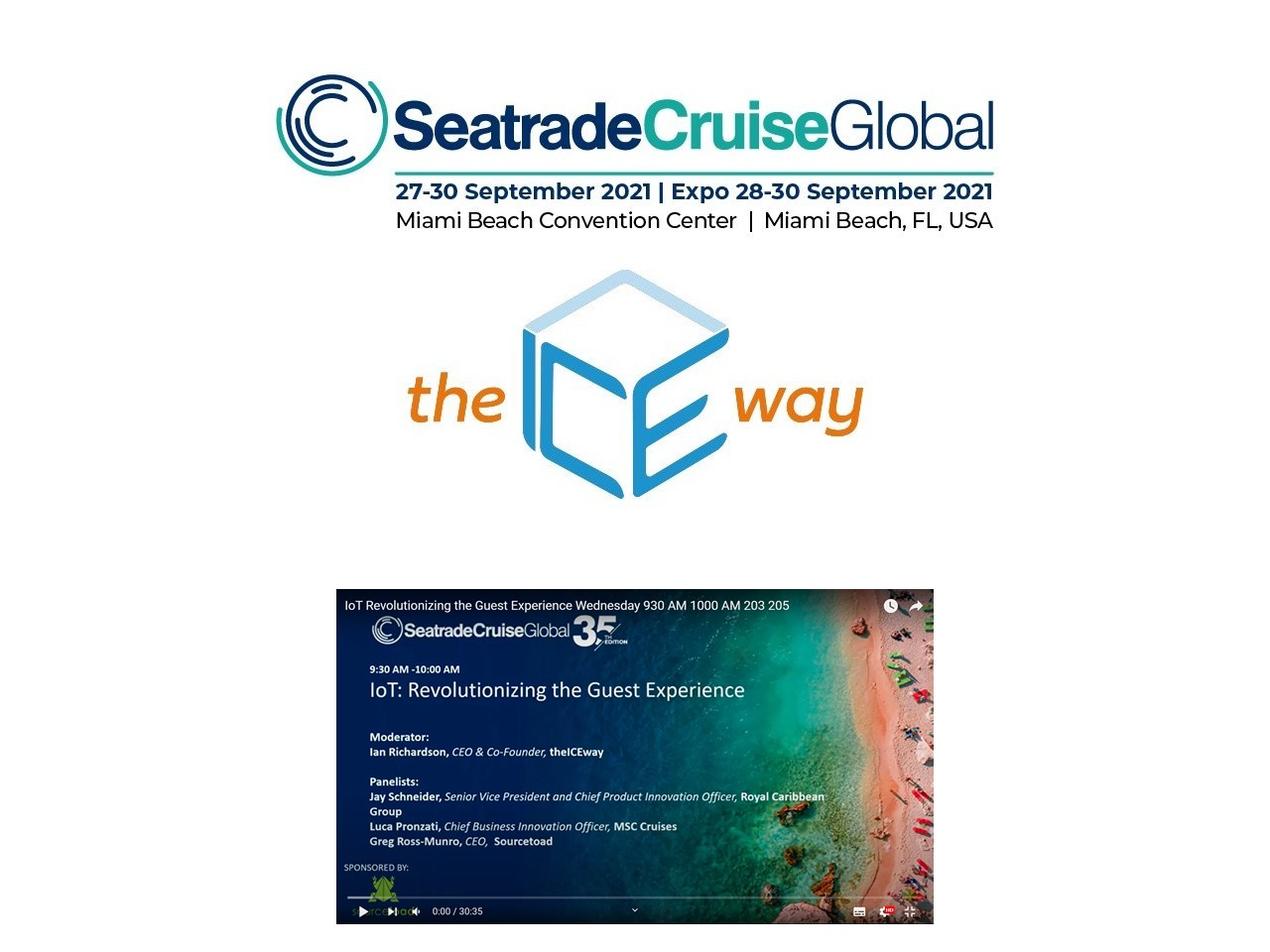
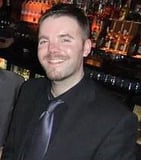


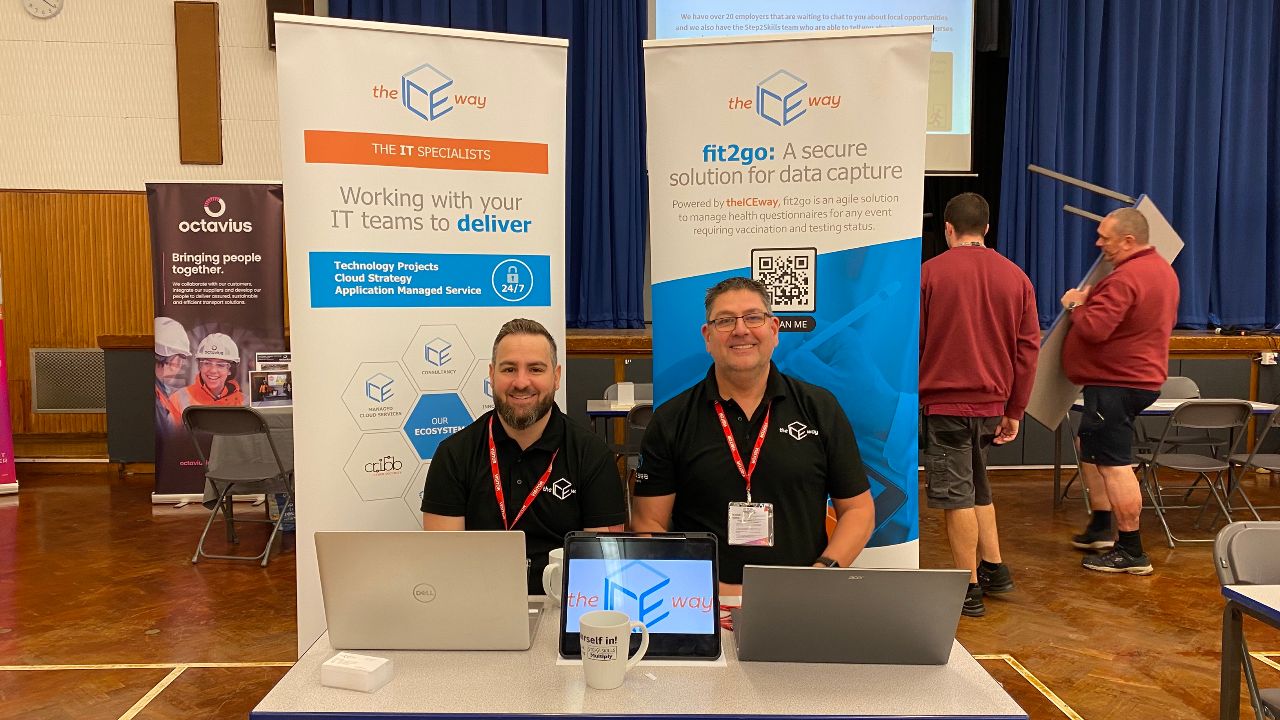
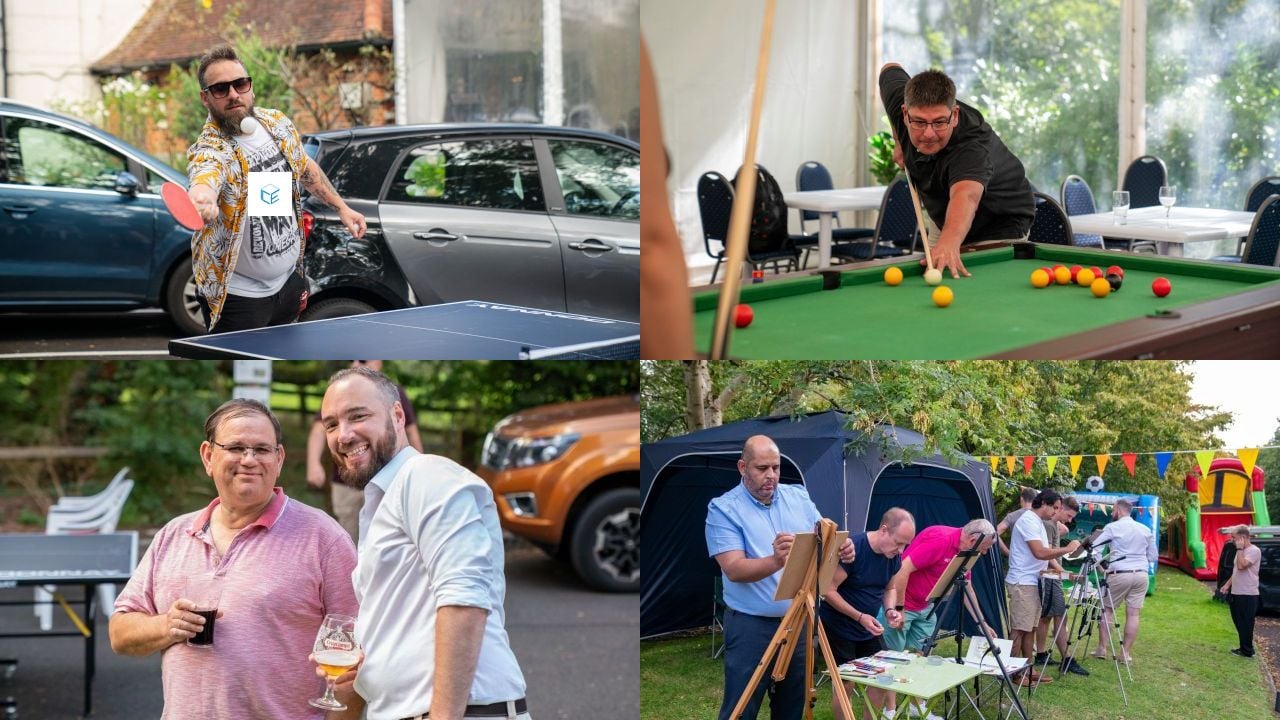
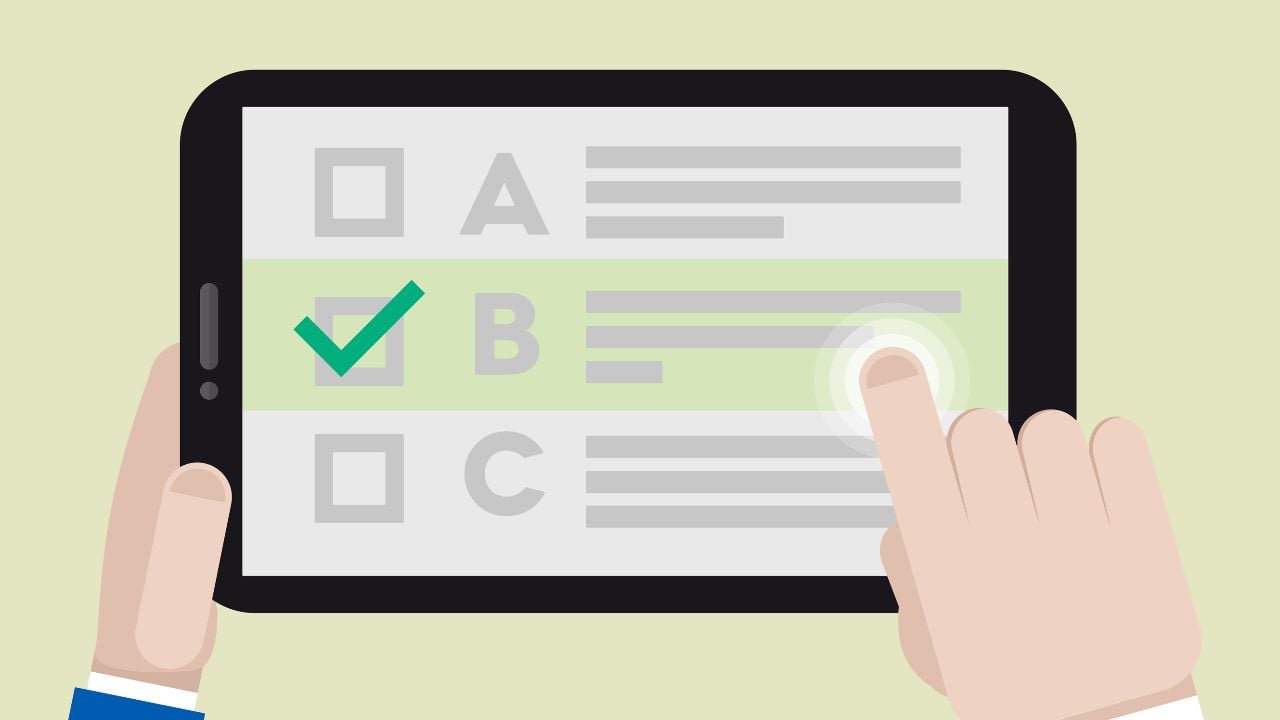
Leave a Comment